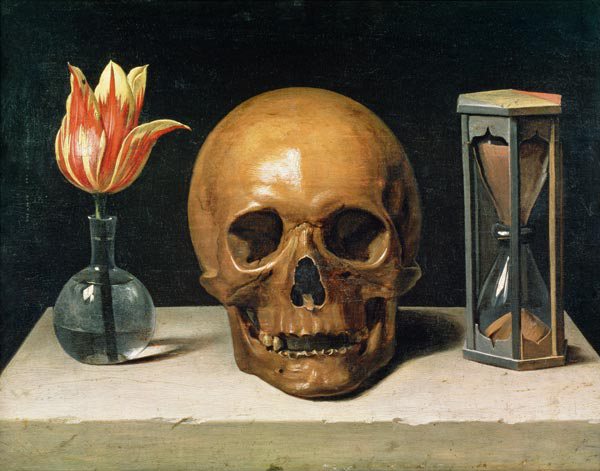Carpe Diem & Memento Mori (remember you have to die!)
“What is time? If no one asks me, I know. If I need to explain it, I don’t know anymore”
Augustine
Philippe de Champaigne, Still life with a skull (Vanitè), 1660s
Time is one of the oldest and most recurring topics in literature across civilizations.
As such, the topic is as vast as human thinking.
Life itself is confined within time, and with Time life engages its most dramatic battle. To highlight the complexity of the topic is the great question (and answer) by Augustine in Confessions:
“What is time? If no one asks me, I know. If I need to explain it, I don’t know anymore”
For now, we will follow Augustine’s suggestion: we will not ask ourselves what time is, but rather we will embark on a journey to explore the interpretations of time provided by great thinkers. In the following episodes, we will explore the notion of time according to ancient Latin and Greek wisdom. We will then move across time, space, and disciplines to build our own interpretation of time and formulate an answer to Augustine’s question.
To be able to represent Time, one needs to look into life and death, the great limits of time itself – or at least of the human time. The very idea of time is in fact linked to humanity, inseparable, even unimaginable without it.
Latin philosophers condensed their interpretation of life and death in two famous formulas: Carpe Diem, that we can translate as “seize the moment” and Memento Mori, or “remember that you have to die".
These are the fundamental places of classic poetry. The two formulas are imperatives, implying the absolute truth Latin philosophers attached to them. The first imperative (carpe diem) is easier to grasp; the second one, differently from what one could expect, exhorts us to “think about death”, not to not-think about it. The two formulas contain the extremes of things, light and darkness, life and death. They deal with limits, where memento mori in particular deals with the absolute limit itself.
But why these two formulas?
Throughout literature, they both become concise yet deep answers in the battle with the evilness of Time: they are deep because apparently contradictory and based on the theory of limit.
The first [carpe diem], is rooted in the present and implies a limit towards the future; it can imply either the full enjoyment of the present moment, or its abdication. The second [memento mori], rooted in the future, implies a limit towards the present and can evoke either the vanity of life or the vanity of death.
Classic poetry continuously blends these two formulas into a continuum. In both cases, though, the future emerges as the real evil: it is not the certainty of death that makes the future vain, but rather it is the future itself that one needs to beware.
The classic perspective constantly goes back to the present moment, and to human existence. Both formulas eventually represent the present moment as the only, real, positive time of our existence. The future is the great excluded, as the future is the tense that abolishes the limit, it is virtual, it is illusion. It is lack of boundaries.
The two formulas have evolved and taken different perspectives (especially religions will have a strong impact) but will remain at the foundation of lyrics and philosophy until modern times.
We exhort you to embark on this journey with us. We will start in the next episode by looking at Horace, the poet of Carpe Diem.
Take your time.
FOCUS • RELAX • CONNECT


